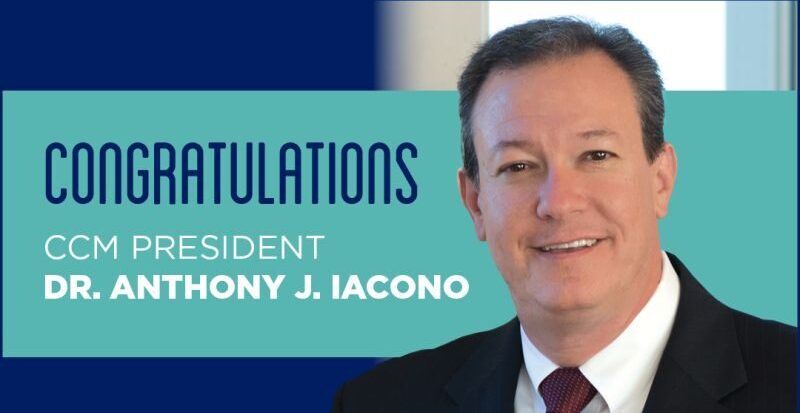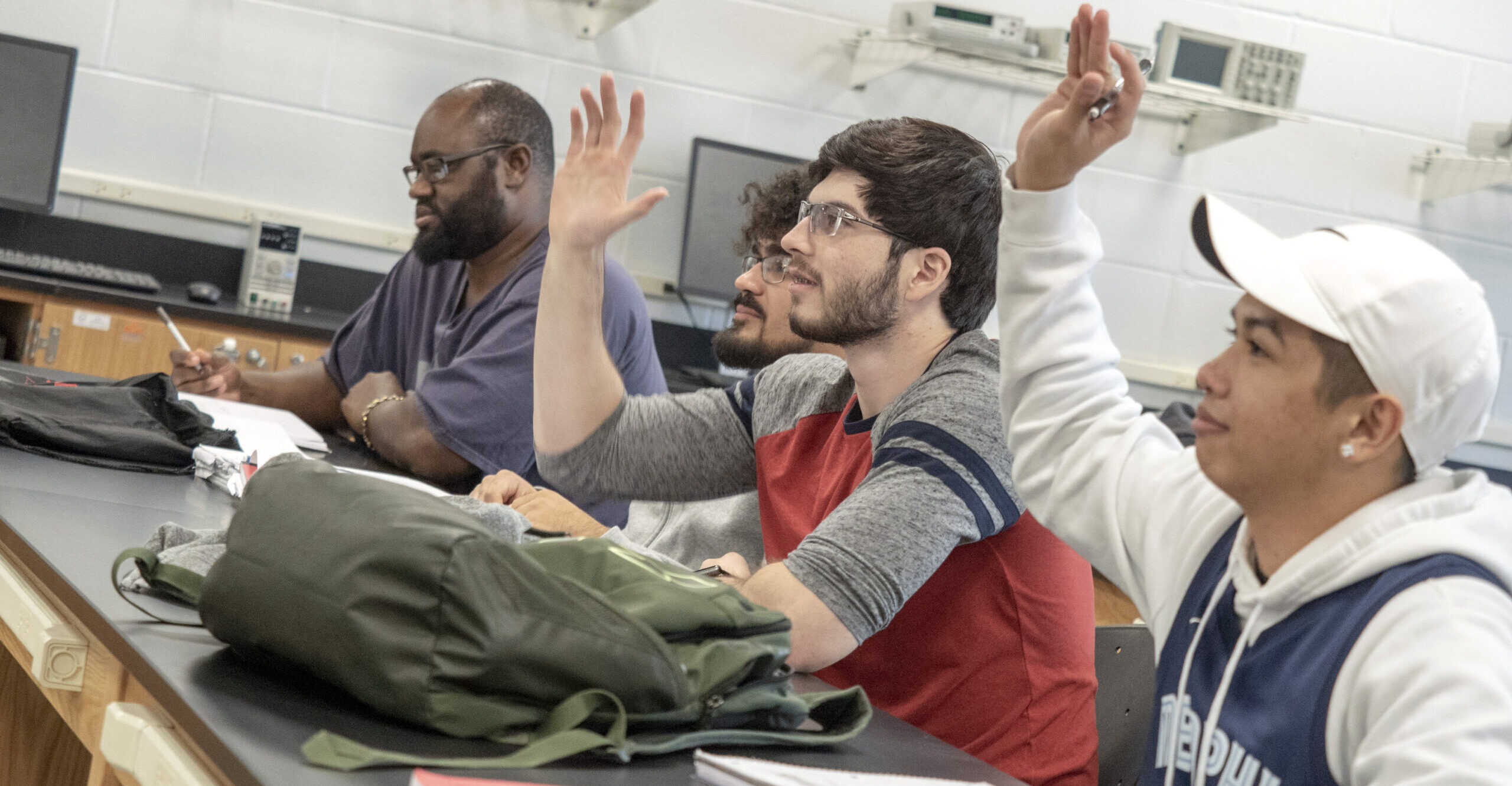What You Will Learn
If you are naturally curious and fascinated about biological systems, plus want to continue learning about the natural world with a goal to teach others this intriguing field, this Associate of Science degree program is for you. Designed for students wanting to major in Biology and to also enroll in education courses at CCM, this program guides you to, upon graduation, transfer to a four-year college or university leading to certification for teaching.
Now more than ever, teachers are in great demand. Plus, the job market is expected to grow over the next 10 years by 5% — tens of thousands of job openings in all grade-levels, from preschool through high school and every level in between, including special education.
As you pursue your associate degree at CCM, you can learn the latest methods and acquire the requirements governed by the New Jersey Professional Standards for Teachers.
Curriculum
A 32-credit general education foundation and a 19-credit biology core with lecture-based and laboratory courses in General Biology and General Chemistry forms the basis of your CCM education. The addition of a three-course series – two courses in education and one course in psychology – prepares your aptitude for the field of teaching. First-hand experience and active participation in diverse and inclusive classroom settings through 25 hours of classroom observation rounds out your program at CCM.
Careers in the Field
Completing the Teacher Education in Biology program at CCM provides the opportunity to immediately become a:
- Paraprofessional
- Substitute Teacher
Graduating from CCM with an associate degree is the first step to becoming a teacher. Transferring to a four-year college or university and successfully completing a bachelor’s degree program is the next step.
CCM has transfer or articulation agreements with the following public colleges and universities in New Jersey to aid in a seamless process:
- Centenary University
- Kean University
- Montclair State University
- New Jersey City University
- New Jersey Institute of Technology
- Ramapo College
- Stockton University
- Rowan University
- Rutgers University
- Saint Elizabeth University
- The College of New Jersey
- Thomas Edison State University
- University of Medicine and Dentistry
- William Paterson University
Why Study Teacher Education in Biology at CCM?
- Study the world of living organisms and fulfill your natural inclination of curiosity.
- Use your logical thinking and analysis to embark on a life-long career path greatly impacting the lives of children to grow into critical thinking and self-sufficient adults by way of mentorship, inspiration and creativity.
- The popularity of STEM programs for the adolescent years can open doors to many employment opportunities.
- The outstanding instruction at CCM with experiential learning prepares you for advanced study and a child-related career in a constantly evolving world.
- Highly skilled faculty are trained in the latest methods for teaching grades K-12 with the highest quality standards governed by the State.
- Three-course curriculum and a program that blends academic and professional preparation and meets New Jersey’s Professional Standards for Teachers.
Paying For Your Teaching Education
Earning your associate degree at CCM and becoming a teacher is an investment that will pay off over the course of your life, in both increased earnings and job satisfaction. But what is the upfront cost, and how do you afford it? Our Financial Aid staff can provide lots of information about the process of finding funds to help pay for your education.
Featured Courses
Behavior Observation in Education
Approximately 20 hours of field classroom observation and weekly seminars in which fellow aspiring teachers learn to apply the teaching methods they learn.
General Biology I and II
An introduction to the biological sciences through a study of principles and concepts basic to the major discipline of biology. Topics include the fundamentals of chemistry, cell structure and function, the nature of biological molecules, energetics, synthesis and the morphology and physiology of animals and plants. Biology II topics include homeostasis, animal reproduction, embryonic development, animal physiology, genetics, ecology and evolution. Dissection is required.
General Chemistry I and II
A study of the fundamental principles of chemistry and their application to chemical reactions. Topics include the structure of the atom, concepts of matter, mass relationships for pure substances and chemical reactions, solutions, electronic structure, the chemical bond, nuclear reactions and gases. Chemistry II emphasizes chemical equilibrium and energy changes in chemical reactions. Also included are acids, bases, buffers, chemical thermodynamics, kinetics, qualitative analysis and electrochemistry.
Your Teacher Education – Biology Faculty Advisor
Dr. John Berger Professor
Email: jberger@ccm.edu
Office: Sheffield Hall Room 207
Office hours: M 12:30PM – 1:30PM/ W 9:30AM – 10:30AM
Phone: 973-328-5731
Department: Biology and Chemistry



